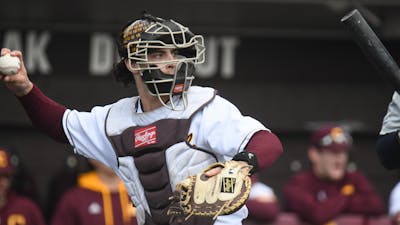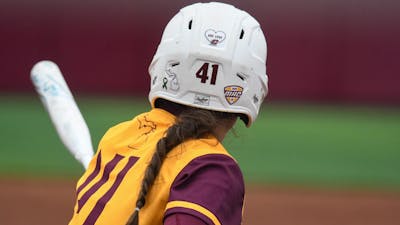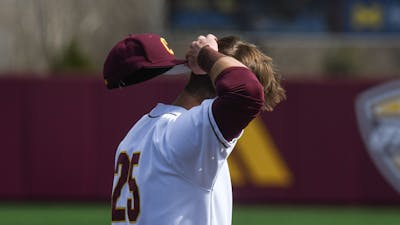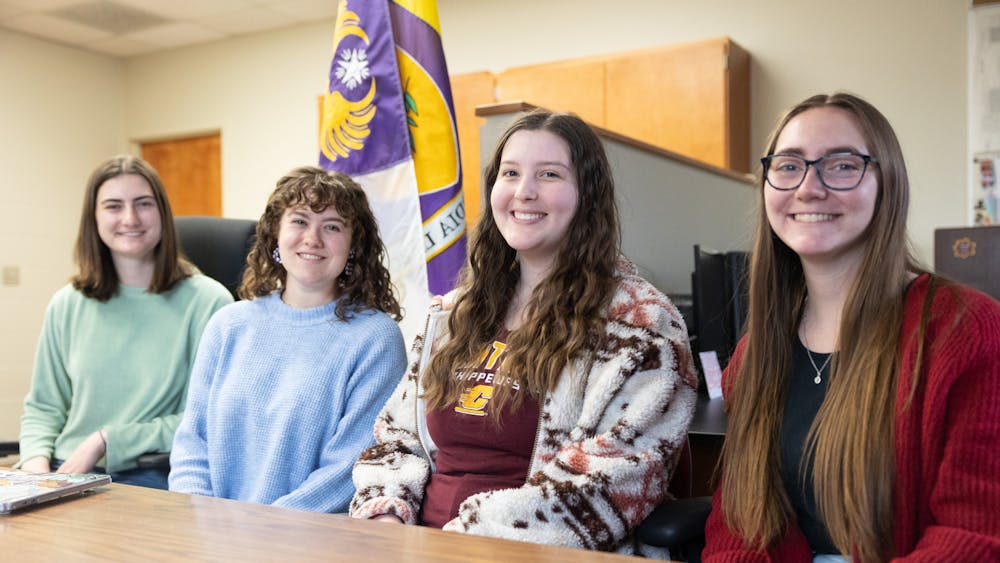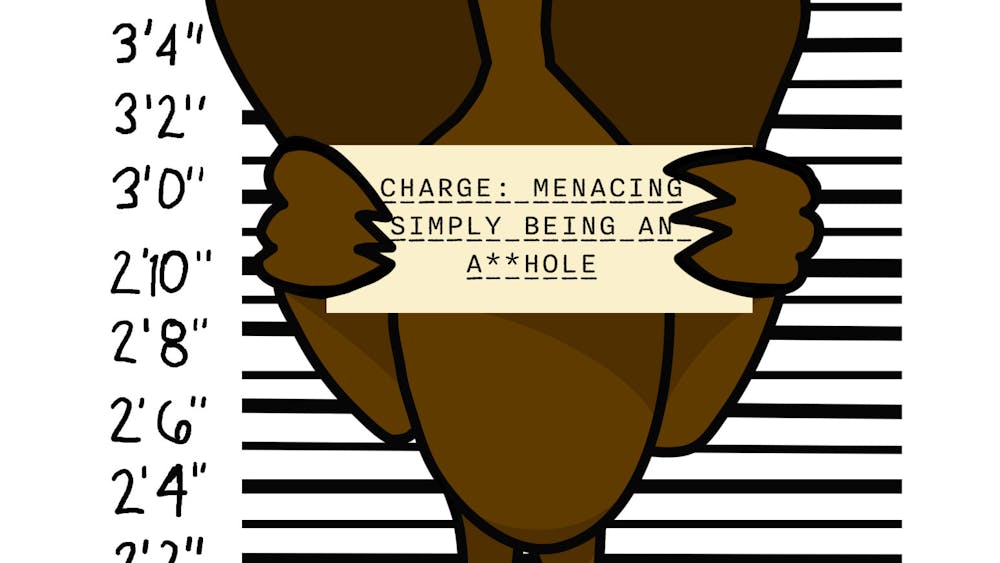Q&A: Athlete coordinator Marilyn Zerbe discusses experience with Special Olympics as a volunteer and parent
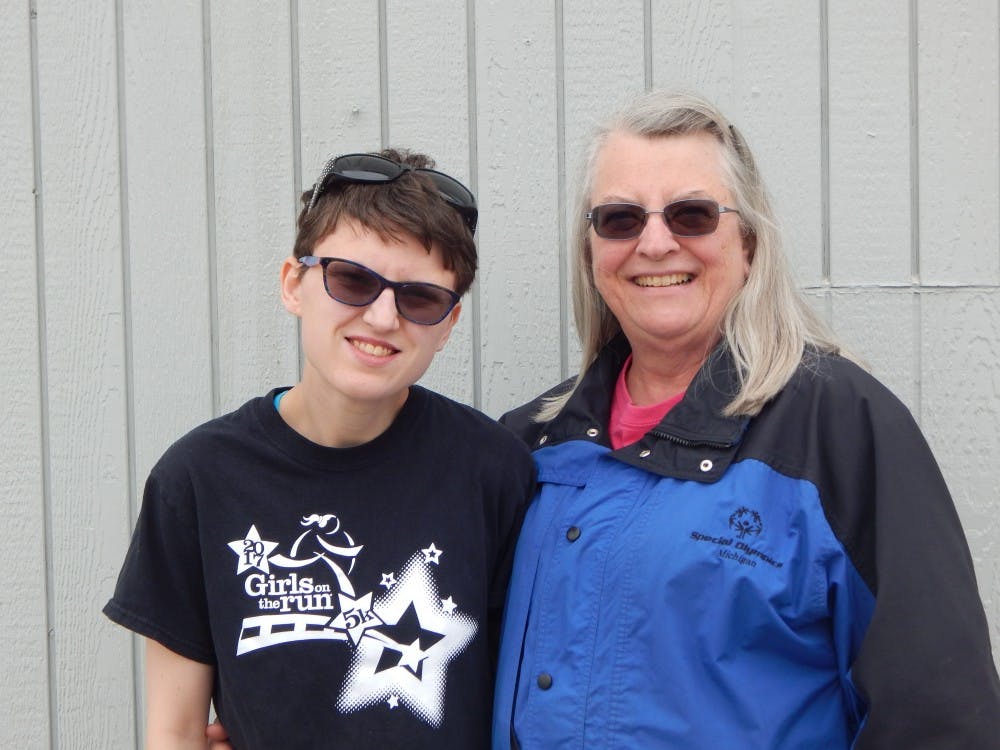
Marilyn Zerbe, athlete coordinator for Special Olympics Michigan, Area 7, and granddaughter Samantha Buckmaster pose for a photo outside Kelly/Shorts Stadium on May 28, 2019.
As a mother of three special needs children, Marilyn Zerbe understood the challenges that were forthcoming. When her adopted granddaughter, Samantha Buckmaster, expressed interest in becoming an Special Olympics athlete Zerbe unknowingly had the next 14 years sculpted before her.
She began by doing small jobs at annual events and later became the volunteer coordinator for the surrounding area. She eventually took on the role as athletic coordinator as well, keeping records of physical examinations for athletes.
Zerbe has created a lasting impact for Special Olympics in Mid-Michigan. She sat down with Central Michigan Life to reflect on her years of service to Special Olympics and offer a unique perspective as both a parent and volunteer.
CM Life: When and how did Special Olympics enter your life?
Zerbe: I grew up in Isabella County, it’s something that’s just always been here. I’ve been doing my part for about 14 years, ever since Samantha was 10. Swimming was her first sport and I volunteered and chaperoned. When I started to realize she would become more involved, I became more involved.
What were other sports Samantha showed interest in?
Soccer came next when she was maybe 11 or 12. When we went to our first competition, we realized some of these athletes were like linebackers. They were huge and competitive while others like Samantha were doing it just for fun. I was scared she was going to get hurt, but the other athletes were very protective of her. These athletes really watch out and care for their teammates.
After that she started doing track and field, then she started doing cheerleading, too.
What were your responsibilities when you started to volunteer more heavily?
It started with working closely with our search director. Then one thing leads to another and I developed a pamphlet of information that I would have known when I first became involved. What was the criteria for an athlete? Do they need to sign up every year? When are their physicals due? Who do I contact if I want to learn this?
The first event I helped with was the golf outing. My job was to gather sponsors for each hole and get things for the silent auction. It started with just two or three but now I can get 20-30 sponsors for an 18-hole golf course.
How did you know you could feel confident contributing to Special Olympics?
Some of the athletes I knew before because I substituted in Mount Pleasant Public Schools. Some were in my daughter’s class. The joy they had while competing made me know it was a worthwhile organization. If Samantha wouldn't have joined, I probably wouldn't be involved.
What is one of your favorite memories of Special Olympics?
One year at the Summer Games it poured Thursday morning through Saturday night. Some of the events could be moved inside but you can’t do that with the running events. So, they were outside running in the rain still with smiles on their faces. I thought to myself, ‘if general education students had to do this, they would be grumbling the whole time,’ but our athletes can have fun in any situation.
Do you ever see yourself passing the torch and stepping away from the program?
Well, I have slowly turned over my duties to other people. I’m not the volunteer coordinator anymore and I have the spreadsheet for the athlete's physicals so that whoever takes it over will have an easy time doing the job. Samantha moved into her own apartment about a year and a half ago and my husband and I have been focused on traveling. So yes, eventually we will be out of it. I’ve brought a lot of organization to the jobs I do which I hope will stick around for many years.
